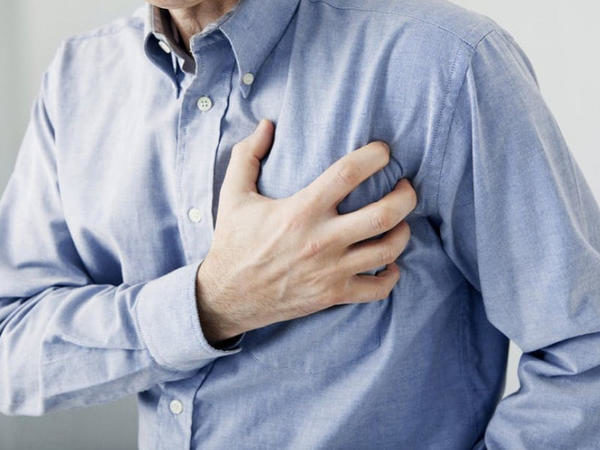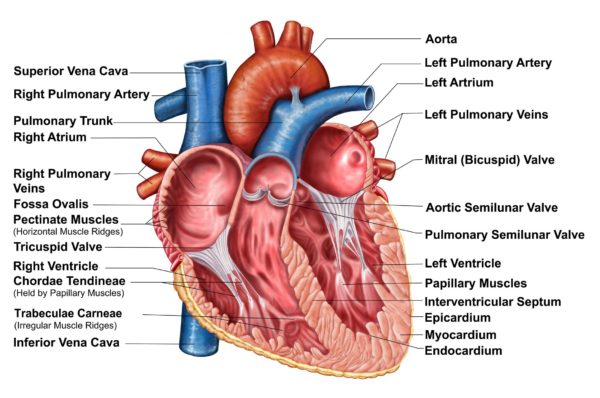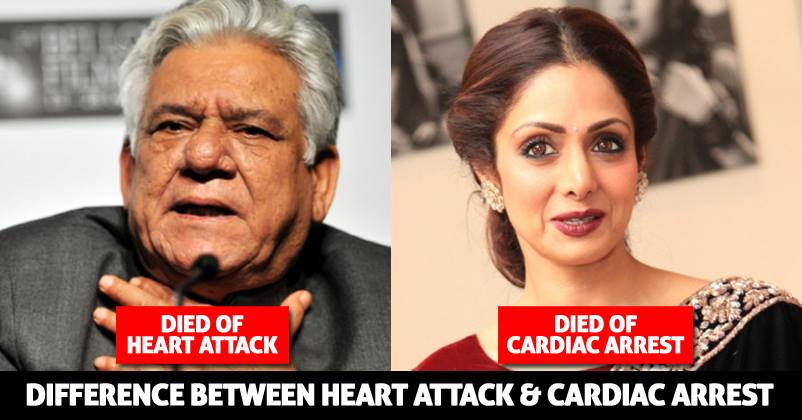The veteran Indian actress Sridevi passed away on Saturday night in Dubai due to cardiac arrest and it is a huge setback not just for the Indian film industry but for the entire nation.

We are seeing that some media houses are using the term “heart attack” in place of cardiac arrest for telling the reason behind Sridevi’s death; however, the truth is that both of these medical conditions are different from each other. While cardiac arrest takes place due to an electrical problem, the heart attack happens due to circulation problem.
What is a heart attack?
When a section of heart stops getting oxygen-rich blood because of a blocked artery, it is called heart attack. That section of the heart which is not getting blood will start dying if the blocked artery is not opened soon and the damage will keep on increasing if treatment is delayed.

The symptoms of heart attack may be visible hours, days or even weeks before it actually takes place but these symptoms can be different in men and women. Moreover, in heart attack, one section of heart may start dying but heart doesn’t stop beating and it keeps on sending blood to different organs of the body.
What is cardiac arrest?
Cardiac arrest takes place suddenly and it comes without a warning. It happens because of an electrical malfunction in heart which results in arrhythmia, a term used for irregular heartbeat. As the pumping action is interrupted, the blood supply to the other organs such as brain, lungs, etc. is stopped and within seconds, the person loses consciousness. Within minutes, the person can die if treatment is not provided.

Despite the fact that both these medical conditions are different, they are linked with each other. The chances of sudden cardiac arrest increases if a person has already had a heart attack and cardiac arrest can take place during the recovery after the heart attack. It is not necessary that a heart attack will result in cardiac arrest but heart attack is a common cause if cardiac arrest occurs.
There are other conditions as well which can lead to cardiac arrest such as heart failure, long Q-T syndrome, thickened heart muscle (cardiomyopathy) and arrhythmias.






